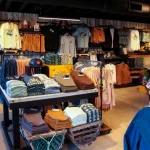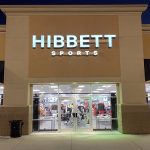Facing surging sheepskin prices and the impact of the warm winter weather on its boot category, Deckers Outdoor Corp. had predicted a tough first quarter. But with margins creeping up, results came in even worse than expected. The company also sharply cut its full-year earnings guidance, citing lower international wholesale projections, and issued a downbeat second-quarter sales outlook.
In the quarter, earnings slumped 54.3 percent to $7.7 million, or 20 cents a share. Revenues increased 20.2 percent to $246.3 million. When it reported fourth quarter results on Feb. 23, Deckers said it expected first quarter 2012 revenue to increase approximately 19 percent and EPS to be down approximately 50 percent compared to 2011. The decline was primarily attributable to the increase in sheepskin prices, together with the increase in operating expense from its retail expansion. Sheepskin prices are up 40 percent in 2012 from 2011.
Overall gross margin was 46.0 percent compared to 50.0 percent for the same period last year. That fell short of its projected gross margin rate of approximately 48 percent. Of the 400 basis point decline, approximately 300 basis points was attributable to an increase in product cost, while higher closeouts on discontinued spring and fall styles, markdowns, discounts and direct to consumer mix contributed approximately 200 basis points to the decline. This was partially offset by the consideration of Sanuk brand and increased pricing. The shortfall from its margin guidance was mostly due to lower margins on the Teva brand and its Other Brands, driven by increased closeouts, as well as increased Ugg closeouts. Sanuk brand margins were ahead of expectations.
Ugg brand net sales for the first quarter increased 6.5 percent to $158.1 million, primarily attributable to an increase in sales at company-owned retail stores.
On a conference call with analysts, Angel Martinez, president and CEO, said that while the extended period of warm weather hurt sales of cold-weather Ugg boots, the brand continued to make progress in “developing a more meaningful spring season business,” with spring styles growing at wholesale by 20 percent.
In domestic wholesale, growth in spring styles and men’s was offset by a decline in cold weather boot sales, with January and February typically being big boot months at retail. Regarding fall 2012, Martinez said slippers, classics, fashion, casual boots, sneakers and casuals all booked well. He added, however, that coming off a warm winter, retailers in general typically take a cautious approach to next season at this point in the year. Said Martinez, “So while they open to buy dollar pool has contracted a bit, based the on conversations with our retailers we believe the Ugg brand's percentage of the total open to buy dollar pool has not diminished, and that the brand, especially in the back half of the year, remains as important if not more important to the retailers with whom we do business.”
Outside the US, the Ugg brand sales in Europe were slightly lower than expected with its critical U.K. market getting hit by both economic challenges and inclement weather. Ugg’s sales in Asia “grew at a fairly rapid pace” during the quarter, helped by a rebound in Japan.
Teva brand sales decreased 1.1 percent in the quarter to $49.8 million. Record domestic wholesale sales and growth in domestic e-commerce sales were offset by a decline in international wholesale sales. On the bright side, sales of closed toe footwear increased 38 percent and the Teva brand launch in Japan saw a “very positive” response. However, the overhang from a wet summer in Europe and the mild winter in both the US and Europe, along with the struggling EU economy, “has left many of our retail partners with more goods than usual for this time of year, which is impacting current open to buy dollars.”
As a result, reorders have been weaker than expected and it’s impacted fall as well. Noted Martinez, “For the first time in a long time, outdoor retailers packed up the fall 2011 goods to hold for next season, with only the top performing SKUs receiving commitments. So despite being named gear of the show at Outdoor Retailer in January, the current selling environment has forced us to reduce the Teva brand's projections for the year.”
Sanuk, the surf brand acquired in July 2011, contributed sales of $32.4 million for the quarter. Martinez said Sanuk “continued its rapid growth trajectory,” driven by increased demand for its expanded line of men's and women's shoes and sandals. In addition to healthy growth within its core channels, the brand has “made good progress building distribution,” with several key retailers including Nordstrom, Zappos, Journeys and Dillards. Said Martinez, “The product is resonating very well, with a broader cross-section of consumers.”
Combined net sales of the company’s other brands (Tsubo, Ahnu, Mozo) were $6.0 million, equal to last year. First quarter 2011 results included the Simple brand, which we ceased distributing at the end of 2011.
Among its channels, sales for the retail store business, which are included in the brand numbers, increased 30.6 percent to $46.2 million, driven by 19 new stores opened after the first quarter of 2011. Domestic comps were up high single-digits on a percentage basis while comps in Asia and the UK were down due, in large part, to the unusually warm weather and the ongoing macroeconomic challenges in the UK. E-commerce revenues decreased 7.5 percent to $21.7 million. Overall comps were flat.
For 2012, Deckers now sees revenue growth of 14 percent, down from its prior view of 15 percent growth. The change reflects lower projections for its international wholesale operations as well as reduction in Teva's domestic sales
Ugg sales are expected to rise 10 percent versus its previous 11 percent guidance due to lower international wholesale and distributor consideration. Teva brand sales are now expected to grow in the low to mid single digit range, compared to prior guidance of approximately 10 percent. Combined sales of Other Brands are expected to be down approximately 15 percent. Sanuk sales are still expected to be approximately $90 million.
EPS is expected to decrease approximately 9 percent to 10 percent from a year earlier, while its prior view called for EPS to be approximately flat year over year. The new guidance assumes a gross profit margin decline of 250 basis points from 2011 levels compared to previous guidance which assumed a decline of 200 basis points. The change was due to lower international sales and increasing Q1 closeouts.
For the second quarter, Deckers forecast revenue growth of 8 percent with the top-line gains slowed by the reduction in European distributor sales. It expects to incur a loss of 60 cents a share in the period versus a loss of 19 cents in the 2001 quarter.
Deckers officials also said it is hearing that sheepskin prices are coming down from their historic highs, but won't know to what extent its full year 2013 product costs will look until prices are locked in around October.














